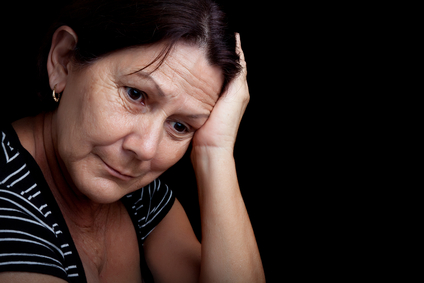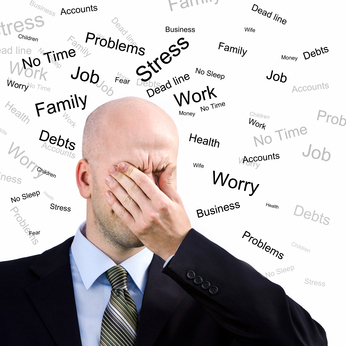Depression and anxiety usually go hand in hand. Too much anxiety can wear a person down by thinking too much and not getting good sleep. When the brain and body cannot maintain a viable energy, various levels of depression will set in. There are two general types of depression. Melancholy depression is usually caused by chronically not getting what one wants or needs from the environment. It could be anything from a physical need like employment and independent living, an emotional need like self esteem and social status, a spiritual need like meaning and purpose, or a relational need like not feeling connected with other human beings. Clinical depression is a more severe depression whereby the brain is acutely worn down and there is little motivation to do anything. It can start out with prolonged melancholy depression but it usually has the tendency to associate with neurochemistry/brain deficits most often determined by heredity. Depressions with no known external/environmental stressors like thyroid, hormonal and medical issues, are other types of depression.

Melancholy depression which also may be predisposed to genetic tendencies is usually treated effectively with psychotherapy. (See my approach to psychotherapy) My view is that most people with any kind of emotional and physical pain between 1-7, (10 being the most pain) can get better without medication. Melancholy depression and associated anxiety is between a 1-7 pain rating. But all too often in our “take a pill society” medicine is desired and prescribed for this type of discomfort. Melancholy depression is a signal system that something is wrong. It is a door opening up that begs for attention. What is it that I am not getting or lost in my life? If I want to do anything about it, what can I do? I have come to realize that when we train our mind to engage in our human experience, head on and sober, with full mindfulness, our mind and body responds by unlocking its full adaptation capabilities. The amazing adaptation process for healing cannot unfold if we become mindless or ignore our experience whether the experience is pain or joy. It appears paradoxical that to heal from pain requires embracing it. Of course physical and emotional pain 8-10 can be unbearable and is best treated using medication.
Fritz Perls, the father of Gestalt Therapy, once said, “Anxiety is the avoidance of pain.” Strangely enough, by learning how to accept emotional pain instead of running away from it, one becomes motivated to change what is needed to stop the anxiety. Obsessive compulsive and addiction disorders are attempts to avoid unwanted and usually high levels of emotional pain. By developing a compulsive behavior like eating, drinking, gambling, over-working, (there are many), one might feel some temporary relief from extreme anxiety.

The common cause of anxiety is obsessing or constant worry. It can be an experience that is very difficult to turn off. Obsessing gets the adrenal glands going creating muscle tension, decreasing the immune system, draining energy and creating a negative loop for more worry and depression.
This condition responds well to medication and my approach to psychotherapy.
Trauma is a conditioned response from either a sudden trauma or a sense of physical/emotional threat over a period of time. It delivers its own type of anxiety and depression. The amygdala in our brain learns from the trauma and makes sure we are cautious in every area of life. I will explain more about this topic on my Trauma page.